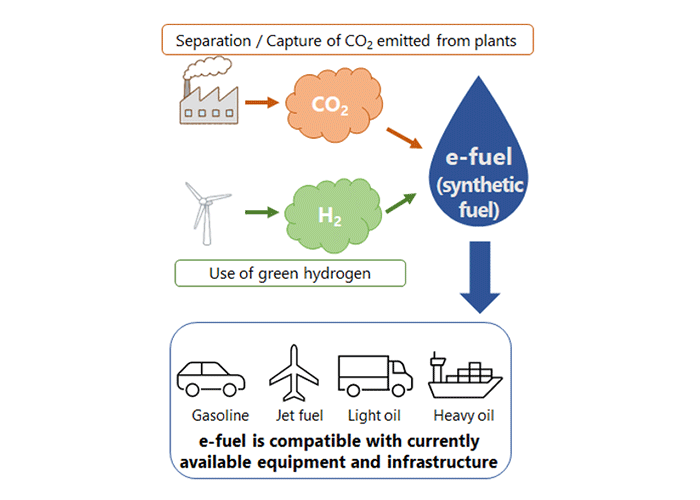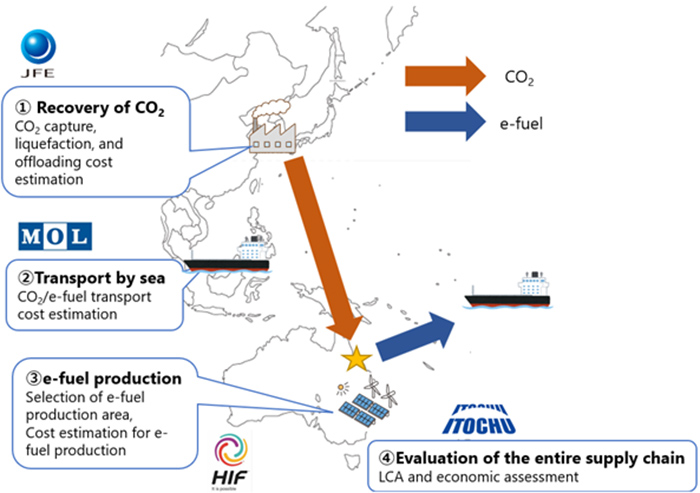
Mitsui O.S.K. Lines, Ltd., ITOCHU Corporation, HIF Asia Pacific Pty Ltd , a wholly owned subsidiary of HIF Global and JFE Steel Corporation announced an agreement to jointly conduct a wide-ranging feasibility study covering on carbon dioxide (CO2) capture in Japan, shipping the CO2 to Australia, production and storage of synthetic fuel (e-fuel) derived from the CO2 in Australia, and establishment of a comprehensive supply chain, including export of e-fuel from Australia.


| Company Name | Business | Role |
| ITOCHU | Trading | Life Cycle Assessment (LCA)*1, economic evaluation, etc. |
| HIF | e-fuel business | Selection of e-fuel production area, e-fuel production cost estimation, etc. |
| JFE Steel | Iron manufacturing | CO2 separation/capture, liquefaction, and offloading cost estimation, etc. |
| MOL | Ocean shipping | CO2 and e-fuel transport cost estimation, study of marine transport, etc. |
The term "e-fuel" refers to liquid fuel produced by synthesizing hydrogen produced from renewable energy sources and CO2. The CO2 feedstock will be CO2 emitted from industries that will have difficulty achieving decarbonization through electrification, hydrogenation, and other means alone. A benefit of e-fuel is that it can use current infrastructure such as vessels, lorries, storage tanks, and fueling stations for transport and storage. In addition, e-fuel itself can be used to power automobiles, aircraft, and vessels without the need to modify or replace current equipment, so its use is expected to be an early decarbonization measure.
Leveraging their networks in Japan and overseas and the knowledge they have cultivated through business in Australia, MOL, ITOCHU, HIF and JFE Steel aim to establish an e-fuel supply chain, starting with a study of its use at JFE Steel, with an eye toward a decarbonized society.
*1 Life cycle assessment (LCA) is a method for quantitatively evaluating the environmental impact of a product throughout its life cycle (resource extraction, raw material production, product manufacturing, distribution/consumption, and disposal/recycling).